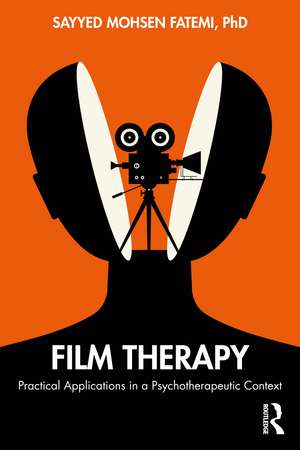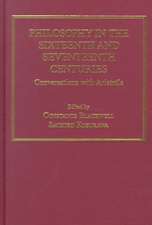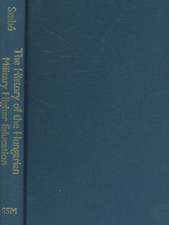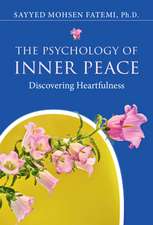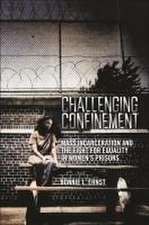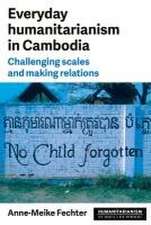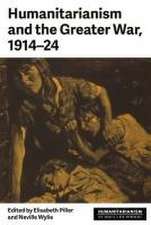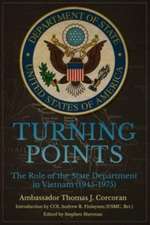Film Therapy: Practical Applications in a Psychotherapeutic Context
Autor Sayyed Mohsen Fatemien Limba Engleză Paperback – 23 dec 2021
Unlike any book on the market, Films Therapy introduces a new paradigm in exploring the subtexts of movies and their potential therapeutic dimensions. The book illuminates how feature films can entail psychological components that can facilitate the therapeutic process. By elaborating the key concepts of each film and their psychological and psychotherapeutic discussions, it provides a demonstration of the films' practical applications in a therapeutic setting, opening a new world for understanding and exploring the dynamics of films in human interaction. The book powerfully delineates the rarely discussed role of films in psychological realms and argues how films can be educationally inspiring for therapists, psychologists, and educators.
Preț: 236.26 lei
Preț vechi: 248.69 lei
-5% Nou
45.21€ • 47.30$ • 37.55£
Carte disponibilă
Livrare economică 12-26 martie
Livrare express 26 februarie-04 martie pentru 36.27 lei
Specificații
ISBN-10: 1138338850
Pagini: 158
Ilustrații: 21 Halftones, black and white; 21 Illustrations, black and white
Dimensiuni: 152 x 229 x 13 mm
Greutate: 0.23 kg
Ediția:1
Editura: Taylor & Francis
Colecția Routledge
Locul publicării:Oxford, United Kingdom
Public țintă
Postgraduate and Professional Practice & DevelopmentCuprins
Notă biografică
Recenzii
"In this milestone book, Sayyed Mohsen Fatemi takes us on an existentially informed cinematic journey. We are guided through a series of reflections about how films can foster mindfulness; a "psychology of possibility," for readers suffering from a myriad of conditions. Fatemi shows how great cinema can provide people who have over-identified with parts of themselves to open to a larger and more enlivened outlook. I highly recommend this book for anyone who works with, suffers from, and inquiries into a deeper dimension of living." —Kirk Schneider, PhD, adjunct faculty, Saybrook University and Teachers College, Columbia University; author of The Polarized Mind, Awakening to Awe, and Horror and the Holy: Wisdom-teachings of the Monster Tale.
"Dr. Sayyed Mohsen Fatemi details how multifarious layers of a film have the potential to elucidate the possibility of describing, explaining, analyzing, interpreting and deciphering the dynamics of the psyche. He offers a broad assortment of film therapy strategies and techniques that may be used with a wide range of clients and mental health issues, including the use of film in psychoanalysis, mindfulness training, relationship enhancement, and social and emotional development." — Edward Kruk, MSW, PhD, president, International Council on Shared Parenting; associate professor, The University of British Columbia, School of Social Work
"Dr. Sayyed Mohsen Fatemi’s book will be a major source for understanding the influences of self, place, identity, culture, and psychological portrayals of troubled and disturbed people for years to come. The information contained in each chapter is a splendid bonus for students, educators, and mental health professionals working in a variety of settings." — Joseph E. Trimble, PhD, distinguished university professor, professor of psychology, Western Washington University, USA
"Dr. Fatemi's book has provided a landmark contribution in the field, illustrating how films can be potentially valuable in psychotherapeutic settings. Clinicians as well as researchers will benefit from the comprehensive, pertinent literature and creative concepts in the book and learn about how movies can pertain to psychoanalysis, relationships and development, mindfulness, and learning modules. Implementing films in psychotherapy offers invaluable avenues in the therapeutic process, and provides unique and diverse points of entry in mental health care." —Bruce Kirkcaldy, PhD, FBPsS, director, International Center for the Study of Occupational and Mental Health, Düsseldorf, Germany
"In this milestone book, Sayyed Mohsen Fatemi takes us on an existentially informed cinematic journey. We are guided through a series of reflections about how films can foster mindfulness; a 'psychology of possibility,' for readers suffering from a myriad of conditions. Fatemi shows how great cinema can provide people who have over-identified with parts of themselves to open to a larger and more enlivened outlook. I highly recommend this book for anyone who works with, suffers from, and inquires into a deeper dimension of living." —Kirk Schneider, PhD, adjunct faculty, Saybrook University and Teachers College, Columbia University, USA; author of The Polarized Mind, Awakening to Awe and Horror and the Holy: Wisdom-teachings of the Monster Tale
"Dr. Sayyed Mohsen Fatemi details how multifarious layers of a film have the potential to elucidate the possibility of describing, explaining, analyzing, interpreting and deciphering the dynamics of the psyche. He offers a broad assortment of film therapy strategies and techniques that may be used with a wide range of clients and mental health issues, including the use of film in psychoanalysis, mindfulness training, relationship enhancement, and social and emotional development." — Edward Kruk, MSW, PhD, president, International Council on Shared Parenting; associate professor, School of Social Work, The University of British Columbia, Canada
Descriere
Unlike any book on the market, Films Therapy introduces a new paradigm in exploring the subtexts of movies and their potential therapeutic dimensions. The book illuminates how feature films can entail psychological components that can facilitate the therapeutic process. By elaborating the key concepts of each film and their psychological and psychotherapeutic discussions, it provides a demonstration of the films' practical applications in a therapeutic setting, opening a new world for understanding and exploring the dynamics of films in human interaction. The book powerfully delineates the rarely discussed role of films in psychological realms and argues how films can be educationally inspiring for therapists, psychologists, and educators.
